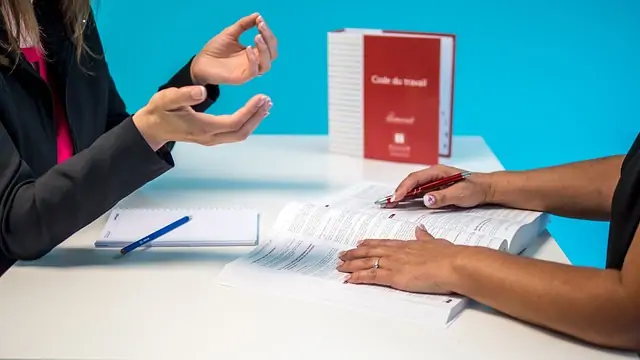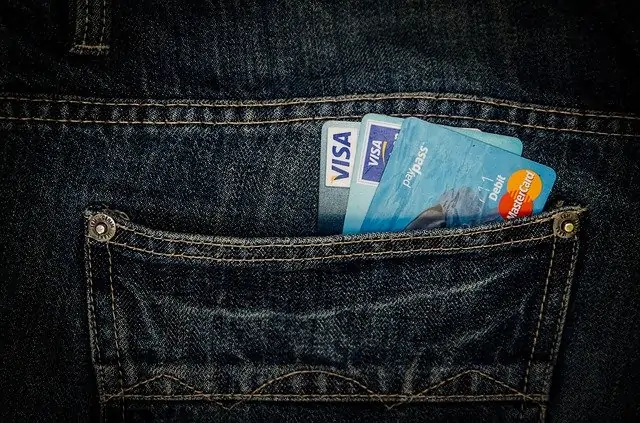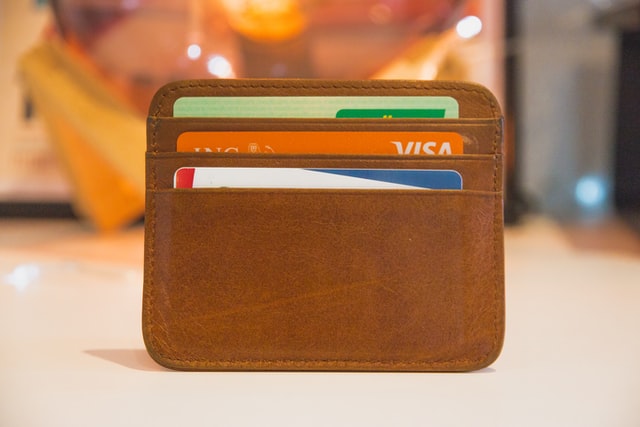This post contains affiliate links. It means that if you click on the links and make a purchase, we will receive a small commission at no additional cost to you. This allows our blog to continue providing you with free information. We only include links and products that we truly believe in. You can read the full disclosure here.
Moving to Germany or new in Germany? Check out our Resources Page for all the help you need!
Thinking about being self-employed in Germany? This guide will help you navigate the world of self-employment in Germany. We’ll explain the important stuff like how to start, what taxes you’ll face, and everything else you need to know such as pension, insurance, start-up grant, loans, etc.
Table of Contents
ToggleA short summary for busy people
- Non-EU/EEA/Swiss citizens need a residence permit for self-employment in Germany.
- Valid residence permits in Germany can grant self-employment rights.
- Self-employment in Germany is categorized into freelancers (Freiberufler) and tradespeople (Gewerbetreibende).
- Software like Accountable or Sorted helps you to manage automatically your freelancer registration, tax, invoices, banking, and bookkeeping – in English.
- Maintain separate business and personal finances with a Wise business bank account.
- Comply with German invoice rules and retain records for ten years.
- Explore start-up grants from the Federal Employment Agency and KfW loans for business financing. You can also find other loan options here.
- Joining the Artists’ Social Fund (KSK) can benefit freelancers in creative or journalistic roles.
- Avoid “false self-employment”, where your status should be that of an employee.
- You can simultaneously be an employee and self-employed
Disclaimer: Please be aware that this article is intended to provide you a brief overview of self-employment in Germany. This blog is not qualified to give you any tax/ legal advice according to German law. If you need more details and specific advice on your personal situation, we would highly recommend you consult a tax adviser or the German tax office.
Are you allowed to be self-employed in Germany?
If you’re a citizen of the EU, EEA, or Switzerland, you’re in luck. You can move to Germany and start freelancing without any major roadblocks.
However, if you’re from elsewhere in the world, you’ll need a residence permit that lets you work as a self-employed person.
If you are already in Germany
If you’re already in Germany and holding a valid residence permit, check your residence permit as it may already grant you the right to do self-employment work.
For example, you may be able to do freelance work while you are studying in Germany. Just keep an eye on health insurance. If you are not working many hours a week or earning too much money, your health insurance will likely still be your reduced student rate.
In my case, I have a valid residence permit which gives me the right to live and work in Germany. It allows me to work both as an employee and as self-employed. So, I didn’t need to apply for a specific visa to do my self-employment work in Germany.
If you are not in Germany yet
If you’re still back in your home country, you’ll need to apply for permission to enter Germany and set up your business. So, get ready to apply for a visa for self-employed occupation at your local German mission.
This process can take a few months. If you are granted an entry visa, you will have to convert the visa into a residence permit within 3 months after arriving in Germany.
If you are from certain non-EU countries (e.g. UK, USA, etc.), you don’t need an entry visa as you can stay in Germany for 3 months. In that case, you can just come to Germany and then apply for a residence permit within three months of arrival.
What document is needed to apply for the resident permit?
For a freelance visa, you’ll need to demonstrate you’ve got a freelancing gig lined up. Show them past work, invoices, and local German contacts who want to hire you.
If you want to be a tradesperson, you will need a business plan that shows that there’s commercial interest, your business can benefit the German economy, and you’ve got the finances locked down.
Some other documents you may need for your application include your CV, a biometric photo, proof of health insurance, a financial plan, recommendation letters, etc.
You may need to pay fees to the foreigner’s office (Ausländerbehörde) for your appointment. You will also have to pay for the resident permit and your visa. So, be ready for that.
How to have a better chance to get the residence permit?
If you’re a super-specialized professional like a scientist, expert, or top-tier manager, you’re more likely to get a residence permit. But it’s not just for the elite – even if you’re in another professional league, you may still be able to get one.
Your business plan should spell out why your business is essential and how it’ll give the German economy a boost. Plus, you’ve got to show you’ve got the financial means to make it happen.
But, remember, the authorities might put some restrictions on you, like specifying the type of self-employment or where you can do it. It’s a local thing, and it’s their call.
Freelancer vs tradesperson in Germany – What are the differences?
If you decide to go self-employed in Germany, the next thing you need to ask yourself is whether you are a freelancer or a tradesperson.
Freelancers (Freiberufler):
Freelancers are often considered the “creative” side of self-employment. They’re folks in “liberal professions,” which include roles like lawyers, doctors, architects, artists, and educators. The defining factor is that their work is often based on formal education, like having a university degree. Freelancers have more freedom in how they operate their businesses.
Here’s some key info:
Tax Benefits:
Freelancers typically enjoy some tax benefits. They don’t pay trade tax (Gewerbesteuer) and usually don’t need to register in the official business register (Handelsregister or Unternehmensregister).
Registration:
Freelancers register directly at the tax office, which means less hassle compared to tradespeople.
Paperwork:
Freelancers don’t usually have to submit an annual balance sheet. Simplified bookkeeping, like a profit-loss statement, is often sufficient.
Freedom:
They don’t need a registered place of business, which means they can work from home or anywhere.
Client Structure:
Freelancers often work on a contract basis for multiple clients at once. They don’t need to belong to a trade association.
Tradespeople (Gewerbetreibende):
Tradespeople are in a different league. They’re involved in various trades, including craft, industrial, commercial, and hospitality fields.
Here are the details:
Registration:
Tradespeople need to register their self-employed activity at the trade office (Gewerbeamt) and acquire a trade license (Gewerbeschein).
Trade Associations:
They often need to be part of relevant trade associations, which helps in dealing with regulations, mobilizing for change, and ensuring accountability for their work.
Place of Business:
Tradespeople may require an office or factory from which to work. Their work often involves production and may require employees.
Trade Tax:
Trade taxes are incurred when they earn an annual profit of 24,500 euros or more.
Legal Structure:
They might need a different legal structure, like an Einzelunternehmen or GmbH, depending on the size and nature of their business.
Different Tax Obligations:
Tradespeople have distinct tax obligations compared to freelancers.
Choosing Your Path:
Whether you end up as a freelancer or a tradesperson isn’t always a personal choice. It often depends on your line of work and the decision ultimately rests with the tax office.
For foreigners looking to set up shop in Germany, understanding these distinctions is crucial. It can impact everything from tax payments to the complexity of your registration process.
In my case, I am a blogger and this does not belong to the freelancer category. So, I have to register at the trade office and understand all the tax responsibilities coming with it.
Sometimes, it may not be easy to figure out which category your self-employment activities belong to, especially if you are in a new industry that doesn’t seem to fit in any category.
Like all the other things in Germany, the rules and regulations for self-employment can be complex. Getting it right from the start will save you headaches down the road.
So, I would strongly advise you to consult the appropriate local authorities, and possibly a legal or financial expert before you start with your self-employment.
How to register as self-employed in Germany?
Firstly, it depends on whether you want to be a freelancer or tradesperson in Germany. Compared to registering as a tradesperson, it’s relatively straightforward to register as a freelancer.
Registration Steps as a freelancer in Germany:
1. Residence Permit:
First things first, ensure you have the right residence permit to work as a freelancer in Germany.
2. Tax Office:
Register directly at the tax office. You can find your local tax office by searching for “Finanzamt” and entering your postal code.
3. Questionnaire:
After registering, you’ll receive a questionnaire for tax collection, called “Fragebogen zur steuerlichen Erfassung“. Fill it out and return it. You can do this online using ELSTER (official software).
Tips: For expats in Germany, I recommend using either Accountable or Sorted. This kind of software can help you to register as a freelancer and get your tax number for free – and in English!
4. Tax Number:
Once you’ve submitted the questionnaire, the tax office will assign you a tax number (“Steuernummer”) that you’ll use on your invoices. Depending on your business, you may also need a VAT ID.
5. Health Insurance:
You must inform your health insurance provider about your self-employment.
Registration Steps as a tradesperson in Germany:
1. Tradespeople need to register their business at the trade office (“Gewerbeamt”) and may require additional permits based on their specific trade.
2. After registering at the trade office, tradespeople will have to register at the tax office and go through the same steps as the freelancers.
What tax applies to the self-employed in Germany?
1. Income Tax (Einkommensteuer)
The big deal for self-employed folks is income tax (Einkommensteuer). If you earn more than the tax-free threshold (about €11,604 in 2024), you gotta pay it. Unlike employees, you pay your income tax yearly.
2. Sales Tax (Umsatzsteuer)
If your sales are expected to be under 50,000 euros for this year and were less than 22,000 euros last year, you can choose to be a small business (Kleinunternehmer) and you won’t have to deal with sales tax.
If you are subject to sales tax, your invoices need to include an extra 19% sales tax. And you’ll make periodic payments to the German tax office, monthly or quarterly.
3. Trade Tax (Gewerbesteuer)
Business owners might need to pay a trade tax. Not for freelancers (Freiberufler). This applies if you earn more than €24,500.
4. Wage Tax on Employees (Lohnsteuer)
If you hire people, you pay wage tax on their salaries. Both employers and employees contribute to this.
Think about tax before starting to be self-employed in Germany
Freelancers and employees play by different tax rules. If you’re self-employed, you’re in charge of calculating and paying your own taxes. Meanwhile, employees have their taxes snatched right from their paychecks.
So, before you take the dive into self-employment in Germany, it’s smart to figure out how much you’ll owe in taxes. The more you make, the more you’ll pay. It can be as high as 45%! So, make sure to factor that into your pricing strategy.
A good thing about self-employment is that you can deduct many different expenses from your tax return. For example, rent of your workplace, internet and phone bills, travel expenses, tools and gear, and anything else you bought solely for business purposes.
How to prepare your taxes in Germany as a self-employed?
Do it yourself
You can be the DIY tax guru and submit directly to the local Tax Office (Finanzamt). You can do so for free by using the Elster website.
Use a tax software
You can use a paid tool for a more user-friendly experience. For example, Accountable or Sorted are tools that are tailor-made for self-employed people in Germany. This way you can also prepare your tax return in English.
For more different tax software, check out this: 11 Best Tax Return Software Germany – Suitable for Anyone
Hire a tax advisor
Getting a tax advisor is highly recommended, especially before your first tax return. It might cost you, but they can save you some serious tax trouble.
I used a tax advisor for my business in the first year. Once I understood how he did my taxes, I started to do it on my own with the help of tax software.
Tips: Software like Accountable or Sorted also gives you the option to consult with a tax advisor in English.
Pensions for the self-employed in Germany
Statutory pension insurance
Freelancers in Germany might have to pay into a statutory pension insurance plan if they are earning over a certain threshold. This is especially true if they’re working in fields like craftsmen, teachers, nurses, midwives, artists, etc.
If you’re not in one of those categories, you can decide to voluntarily contribute to a state pension. You can decide how much you want to contribute, as long as it’s more than the minimum requirement, which is 18.6% of your income.
What is Künstlersozialkasse (KSK)?
As a freelancer, this 18.6% pension duty falls entirely on your shoulders without an employer. But, if you’re a member of the Artists’ Social Fund (Künstlersozialkasse), it will cover half of your contributions.
Who can join the Artists’ Social Fund?
If you want to join the Artists’ Social Fund, you’ve got to be an artist or a publicist who’s doing creative or journalistic stuff for profit. And no, it can’t be just a quick, one-time thing. It needs to be a sustainable, long-term income-generating hustle.
Also, you’ve got to do this independently and not as part of some regular job. And your income needs to be over a certain threshold (3,900 EUR per year).
Now, if you’re employing more than one person for your creative work, you might not qualify for KSK, unless they’re trainees or it’s just a minor side gig (making under 520 euros per month).
For more info about KSK, you can check out this website.
Private pension plan
If your job doesn’t make you contribute by default, you can think about going the private pension route. Something like a Riester or Rürup pension can be your option.
For more explanation on these private pension plans, check out here.
What insurance do self-employed people need in Germany?
Health Insurance
Health insurance is mandatory in Germany. Self-employed people in Germany will need to cover the entire contribution themselves (14.6% of their income) without the support of an employer. An exception would be if you join the Artists’ Social Fund (Künstlersozialkasse), which can reduce your contribution by 50%.
Self-employed people in Germany can opt for statutory health insurance or private health insurance. Statutory health insurance covers long-term care and sickness benefits.
To decide which one is better for you, check this out: Private vs Public Health Insurance: What is Better for Expats in Germany?
Disability Insurance
Disability insurance provides financial support if you are unable to work due to illness or injury. It’s optional but can be important, especially if you have dependents or a mortgage.
For more details, check this out: Occupational Disability Insurance in Germany – 5 Best Offers
Liability Insurance
Liability insurance covers potential damages or accidents that you may cause while providing services. There’s private liability insurance for personal incidents and professional liability insurance for business activities. Note that professional liability insurance is mandatory for some professions.
If you already have private liability insurance in Germany, it may not cover your business activities. You should check your policy and get a professional liability insurance policy if needed.
Legal Insurance
Legal insurance covers legal costs when you need a lawyer for issues related to your business activities. Your private legal insurance in Germany may not cover your business activities. So, it’s important to get professional legal insurance for business matters.
Unemployment Insurance
Self-employed people in Germany can make voluntary contributions to the statutory unemployment insurance scheme to qualify for unemployment benefits.
Read also: Unemployment Benefit in Germany (+ Citizen’s Income) – Application Guide for Expats
Sickness Pay
Employees receive sickness pay while they are ill. If you are self-employed in Germany, you do not get paid while sick. But you can opt for sickness pay (Krankengeld) by paying higher health insurance premiums.
Occupational Accident Insurance
Self-employed people in Germany can choose to have voluntary accident insurance. If they have employees, they must be insured as well.
Banking for the self-employed in Germany
When starting your self-employment in Germany, don’t underestimate the importance of picking the right banking or financial services. Your choice can either make your life as a business owner way smoother or leave you in a financial pickle. You need something more flexible than the everyday bank account, tailored for business.
Must you use a business bank account?
No, you don’t have to. But I would highly recommend it.
When I first started my side business, I used my personal bank account because I didn’t have any income at the beginning (or just a very tiny little bit). But when the business started to grow, my banking became very messy.
It was hard to see what was my personal vs business transactions in the same bank account. And it made bookkeeping and tax filing even more complicated.
At some point in time, I decided to open a business bank account to keep things clean. I also used tax software which let me connect my bank account to it. Since I connect my business bank account to the tax software, whenever there is a new transaction in my bank account, it will be imported automatically into the tax software.
So, instead of tracking everything in Excel (like what I did at the beginning), I just need to go to the tax software, check what are the new transactions, and book them to the right category. The income statement can then be generated by some clicks in the tax software. I can also do analysis much easier with the help of the software.
In short, keeping your business transaction separated from your personal one is great, especially when your business starts to grow and you have to pay VAT. I highly recommend using tax software like Accountable or Sorted, which lets you integrate your bank account.
What is the best business bank account to use?
As an expat in Germany, you may have revenue from your side business coming from all over the world (at least in my case). In that case, you’ll probably get paid through wire services like PayPal.
But beware of those high fees and exchange rates that different banks and services throw at you. They could apply low initial fees but cunningly use a higher exchange rate to extract some additional profit.
For more cash in your pocket, check out Wise. Your money gets converted using the real exchange rate (the one you’d Google), and that means more money left for you.
And if you’re juggling multiple currencies, the Wise multi-currency Borderless account is a great choice. It’s like having a “local bank” in the EU, UK, US, or Australia while living in Germany. You can send, receive, and manage money in different currencies, including Euros.
I have both my personal and business accounts at WISE with different currencies. And I can highly recommend it based on my personal experience.
Get your Wise business account here now!
Self-employed in Germany – Invoices
How to format the invoice:
Whenever you provide a service, you must issue an invoice within six months. Your invoices must include specific information. In general, you should include the following details in your invoices:
- Full names and addresses of both parties
- Invoice number
- Invoice date
- Gross amount, sales tax (if any), and net amount
- Goods or services provided
- Your tax number
- Your VAT number (if any)
- Description of any tax exemptions
Read also: VAT in Germany – A Comprehensive Guide for Expats
Simple vs double-entry accounting
Simple-entry accounting = Einfache Buchführung in German. This is an easier way to do bookkeeping. You will submit a Surplus Income Statement to the tax office. This is called EÜR (Einkommen Überschuss Rechnung) in German.
On the other hand, double-entry accounting is called Doppelte Buchführung in German. You will need to prepare a balance sheet.
If your business reaches a certain income or revenue threshold, you might need to switch from a simple entry accounting record to a double-entry system in Germany. Freelancers in Germany often follow a simple entry accounting system, regardless of their income.
In my case, I have only been doing simple-entry accounting and submitting my EÜR to the tax office every year. In my opinion, it is not too complicated to prepare the EÜR. But I am an accountant in my day job 🙂
Bookkeeping obligation for self-employed people in Germany
Self-employed people in Germany need to keep their business affairs well-organized. Remember, the tax office can request records (e.g. invoices) dating back 10 years if you’re audited. Consider hiring a tax advisor to help. Or at least use tax software.
When I first started my business, I was using Excel sheets to track everything. I was overwhelmed over time and decided to give it a try with tax software. And oh my god. It is so much better. It automatized my process and saved me so much time! I can definitely recommend it.
What is a start-up grant (Gründungszuschuss)?
So, you’re thinking about starting your own business, but you’re currently receiving unemployment benefits in Germany?
Well, good news – there’s something called a start-up grant that can give you a financial boost to make that entrepreneurial dream a reality.
Here’s the deal: If you’re unemployed and want to kickstart your own business, this grant can help you get off the ground. This grant is offered by the Federal Employment Agency (Bundesagentur für Arbeit).
Who can get a start-up grant?
- You must be receiving unemployment benefits.
- You still need to qualify for unemployment benefits for at least 150 days when you start your business.
- However, folks with disabilities can get this grant even if they don’t meet the 150-day requirement.
- You need to be running your business full-time, so you’re no longer unemployed.
The catch is that your business idea needs to pass an expert evaluation to ensure its long-term success. You can’t just claim it; you have to prove it. Your placement specialist will evaluate your skills and qualifications. So, make sure you have the right background for your business.
How much money can you get with the start-up grant?
The grant comes in two phases:
Phase 1:
You get a monthly subsidy for six months. It’s based on your previous unemployment benefits plus an extra 300 euros for social security.
Phase 2:
After that, the financial support continues but at a reduced rate. You receive 300 euros per month for social security, also for nine months. But remember, you need to actively apply for the second phase and prove that you’re running your business full-time.
You should be able to fully support yourself through your business after Phase 2.
Check out the website of the Federal Employment Agency to learn more details. You can also schedule a consultation with a specialist there.
How to Apply for a Loan as a Self-Employed Person in Germany
Getting a loan as a self-employed individual usually involves more effort compared to regular employees. Your bank is a natural starting point because they are familiar with you and your financial history.
However, being an existing customer doesn’t guarantee the best loan terms, so consider shopping around for offers from different banks. The interest rate can make a significant difference in the total amount you repay.
One good option for self-employed people in Germany is to get a KfW loan. The Kreditanstalt für Wiederaufbau (KfW) offers loans with EU funding to support start-ups and self-employed individuals in building their businesses. These loans have lower interest rates and can finance various aspects of your business, including operating expenses and investments.
If that doesn’t work out, there are many other ways to get a loan in Germany. You can check out the options and their comparison in this article: Loan in Germany – How to Get a Personal Loan (+ Best Offers)
What is fake self-employment (Scheinselbständigkeit)?
In plain terms, “false self-employment” is when someone is working like a self-employed person, but in reality, they should be considered an employee. The key factor is how the job looks when you consider all the details.
So, fake self-employment is when:
- The parties involved are saying it’s self-employment.
- They’re not paying social security contributions.
- But if you look at everything, it seems more like a regular job.
A fake self-employment example can be a freelancer who works only for a single client. Fake self-employment is more common in industries such as transportation (like drivers and couriers), cleaning, programming, consulting, and more.
Why do people want to fake their self-employment?
Employees are usually required to pay into social security (think health, nursing care, pension, and unemployment insurance). Self-employed folks usually handle these risks themselves, so they don’t have to pay these contributions. But if self-employment is fake, those extra payments might be needed.
What is the consequence of having fake self-employment?
Well, if someone’s wrongly seen as self-employed when they should be an employee, it can lead to some financial trouble.
Social security contributions might be backtracked, and the employer could end up owing money for the contributions they should’ve paid. So, making sure there’s no fake self-employment is a big deal.
To spot fake self-employment, you can watch out for indicators such as rigidly set working hours and deep integration into the company’s day-to-day operations.
Can you be an employee and self-employed at the same time in Germany?
Sure! This was exactly what I did in Germany. I had my full-time time job, but I also had my small business on the side. And of course, I had to pay tax for both my salary and my self-employed income.
In fact, I think part-time self-employment comes with a lot of benefits. Having a steady paycheck from your day job gives you a financial safety net to experiment with your self-employed work without going all-in. You can test to see first if your business idea works out without quitting your regular job.
Do you have to inform your employer about your self-employment in Germany?
Legally, you can be self-employed on the side, and your boss can’t stop you as long as this is not affecting your performance at your regular job. Of course, you cannot run your side business using the resources of your employer or create competition with your employer.
In my case, I did inform my employer about my side business. I signed a form officially, telling them what my business was about, and confirmed that this had nothing to do with the industry of my employer. My employer then sent me an approval letter on this topic. I like to have it official and written, just in case.
How about your health insurance?
I also checked with my health insurance on this topic to be sure. I had public health insurance (TK). They asked me to fill in a form to confirm how many hours per week I was working on my side business and how much I earned from it. Based on that info, they will decide if my “main job” is my employed job or my side business.
So, as long as you are not working too many hours on your side business and are not earning more than your salary, you should be fine and can continue to be covered by your health insurance.
Conclusion
Being successful as your own boss means you have to plan carefully, follow the rules, and be ready to adapt to how business works in Germany. By making the right legal choices, knowing the tax rules, and staying informed about how business works here, you can do well as a self-employed person in Germany.
Even though it might seem challenging, the potential rewards are big. Looking back, I was so glad that I started my side business a few years ago.
So, if you’re thinking about being self-employed in Germany, start by getting all the info you need. Only dreaming won’t get you anywhere unless actions are taken. The dream of running a successful business in Germany is within reach if you’re up for the challenge.
Pin it for later:

Disclaimer
Please be aware that this article is intended to provide you a brief overview of self-employment in Germany. The information and tips in this article are based on personal experiences and thorough research.
This blog is not qualified to give you any tax/ legal advice according to German law and we do not accept any form of liability resulting from reading this article. Our blog makes no guarantee as to the accuracy or timeliness of the information in this article. If you need more details and specific advice on your personal situation, we would highly recommend you consult a tax adviser or the German tax office.
Are you self-employed in Germany? How is it to have your own business in Germany? Leave a comment below and share your experience!
Moving to Germany or new in Germany? Check out our Resources Page for all the help you need!
If you found this article helpful, consider supporting this website by buying me a coffee. Every small donation helps to keep this blog alive. You can also ask me any questions here. Buy me a coffee







